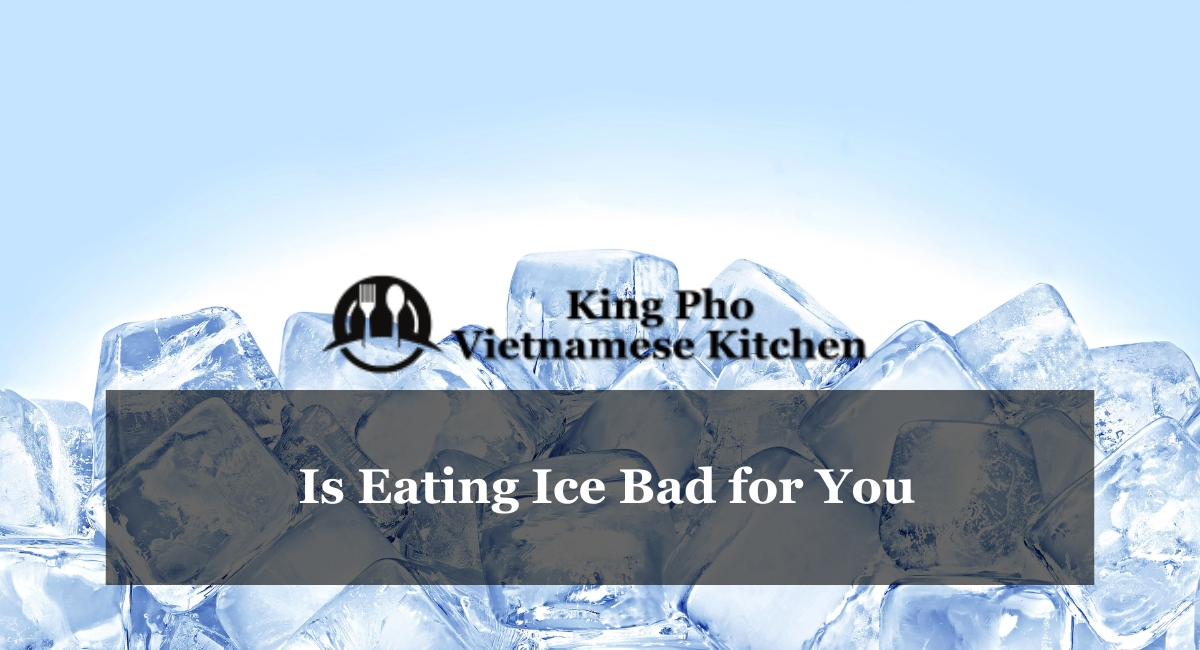Reaching into the freezer for a refreshing handful of ice cubes on a scorching summer day.
The satisfying crunch, the instant coolness – it’s a simple pleasure. But have you ever stopped to wonder, is this seemingly harmless habit actually bad for you?
The answer, like most things in life, isn’t a simple yes or no. It depends on how you’re consuming the ice.
The Case for Occasional Ice Munching
Occasionally sucking on an ice cube to cool down or soothe a sore throat is perfectly fine.
The melted ice hydrates you, providing much-needed fluids on a hot day. The coolness acts as a topical anesthetic, temporarily numbing the discomfort of a scratchy throat.
However, there’s a catch. People with sensitive teeth might experience discomfort from the extreme cold.
The sudden temperature change can trigger a sharp pain or zinging sensation in the teeth. If that’s you, stick to chilled water for a gentler cooling effect.
The Big Chill: Why Chewing Ice Can Be a Pain (Literally)
Chewing ice regularly, however, can wreak havoc on your pearly whites. Here’s why:
Cracked Teeth: Ice is incredibly hard, much harder than your teeth are designed to handle.
Regularly chewing on it can cause cracks or chips in your teeth, leading to pain and sensitivity. Imagine biting down on a rock – not exactly the best idea for your teeth!
Goodbye Enamel: The hard outer layer of your teeth, enamel, protects them from decay. It’s like a natural shield. Chewing ice can wear down this enamel over time, making your teeth more susceptible to cavities.
Think of it like slowly chipping away at your teeth’s protective armor, leaving them vulnerable to attack by bacteria.
Gum Trouble: The constant pressure of chewing ice can irritate your gums, leading to receding gums and even gum disease. Your gums act like the foundation for your teeth.
When they’re irritated and inflamed, they start to pull away from the teeth, creating pockets where bacteria can thrive and lead to gum disease.
Headaches Anyone?: Believe it or not, some people experience headaches after frequently chewing ice.
The theory is that the extreme cold temperature can trigger these headaches. The exact reason isn’t fully understood, but it’s a potential downside to consider.
Beyond the Teeth: Unmasking the Underlying Reasons for Pica
If you find yourself craving ice to the point where you can’t resist chewing it regularly, it might be a sign of a condition called pica. Pica is a disorder that causes people to crave and eat non-food items, including ice, dirt, or even chalk.
Here are some reasons why someone might develop pica:
Iron deficiency: This is a common cause of pica, especially in pregnant women and children.
Iron is essential for many bodily functions, including oxygen transport. When iron levels are low, the body might send confusing signals, leading to cravings for unusual things.
Nutritional deficiencies: Deficiencies in other nutrients, like zinc or vitamin B12, can also lead to pica.
These nutrients play a role in nerve function and taste perception. When they’re lacking, the body might crave unusual things to try and compensate.
Mental health conditions: Pica can sometimes be associated with anxiety, OCD (Obsessive-Compulsive Disorder), or other mental health conditions.
The reasons for this link aren’t entirely clear, but it’s thought to be a way of coping with stress or anxiety.
Breaking the Ice Habit: Tips to Help You Chill Out Differently
If you’re concerned about your ice chewing habit, here are some tips to help you kick it:
Identify your triggers: Are you more likely to reach for ice when you’re stressed or bored? Find healthy coping mechanisms for these emotions. Maybe exercise helps you de-stress, or reading a book helps you unwind when bored.
Find a substitute: If you crave the sensation of crunching, try chewing sugar-free gum or crunchy vegetables like carrots or celery. These provide a satisfying crunch without damaging your teeth.
Address the root cause: If you suspect you might have pica, talk to your doctor. They can help identify any underlying nutritional deficiencies or mental health concerns and recommend treatment options. Getting to the root cause is key to breaking the habit in the long run.
The Bottom Line: Moderation is Key
So, is eating ice bad for you? In moderation, and if you’re sucking on it rather than chewing, it’s unlikely to cause any harm. However, regularly chewing ice
amage your teeth and gums. But the impact goes beyond just dental woes. Here’s why:
Jaw Strain and Pain: Constantly crunching on ice can put a strain on your jaw muscles, leading to pain and discomfort. Imagine clenching your jaw all day – that’s essentially what happens when you chew ice excessively.
Digestive Issues: Chewing ice can disrupt your digestive system. The sudden influx of cold water can interfere with proper digestion, potentially leading to bloating, gas, or stomach cramps.
Electrolyte Imbalance: While ice itself doesn’t contain electrolytes, the constant dilution with water from melted ice can lead to an electrolyte imbalance in some cases. Electrolytes are minerals that help regulate various bodily functions, and an imbalance can cause fatigue, muscle weakness, and even heart problems.
The Icy Truth: A Habit Worth Ditching
While the occasional ice cube on a hot day might be harmless, regularly chewing ice can have negative consequences for your oral health, overall well-being, and even your digestion.
If you find yourself constantly craving ice, it’s best to consult your doctor. They can help identify any underlying medical conditions and recommend treatment options.
Remember, a healthy smile and a healthy body go hand in hand. So, ditch the ice and find healthier ways to cool down, manage stress, and address any nutritional deficiencies.
There are plenty of refreshing alternatives to ice chewing. Try sipping on chilled herbal tea, indulging in a frozen fruit smoothie, or simply enjoying a cool glass of water with a twist of lemon or cucumber. Your taste buds and your body will thank you!
